Kia ora and welcome to The Weekend, the newsletter where we click juicy juicy links and try to ingest the best writing from The Spinoff and around the internet. I’ve noticed that I have an incipient sandal tan, which means one thing: it’s ice cream season. As a known cold treats obsessive, I’ve been filling my freezer with sour cherry ice cream and grapefruit and gin ice blocks. Sadly, there is no way to share through the medium of the internet but if you’re looking for a long weekend project, you could try to make these peach and pretzel ice blocks. Please talk to me about ice cream in the comments! Or, if you’re of the caffeinated persuasion, brew the beans of our glorious sponsor Coffee Supreme for iced or hot consumption, and keep reading.
-Shanti Mathias, staff writer
Diwali doesn’t have to mean fireworks
Like Christmas in New Zealand, in India, Diwali is a celebration where most people join in, including non-Hindus: everyone gets time off, eats mithai, and decorates doorsteps with rangoli. In the town where I grew up, little stalls would be set up to sell fireworks in the weeks leading up to Diwali, at cheap prices and for anyone to buy. I have a particularly vivid memory of daydreaming in science class, hearing a loud bang, and seeing a group of my classmates sprint down the smoky corridor with the deputy principal in hot pursuit. But while fireworks fill the night with glitter, the morning after brings eyes stinging with smoke. And then there are the labour issues. Perzen Patel, a Parsi, writes about the Diwali of her own childhood, and learning to resist the forbidden flame of firecrackers.
Stolen ancestors take the long route home
True fans might have noticed quite a lot of museum-related links in this newsletter. I have surrendered my dream of being a museum curator but I’m still fascinated by the ability these institutions have to tell stories about the past. The history of museums is a colonial one: some of the world’s most treasured collections have been built on treasures stolen from colonised people – and some of what was stolen was sacred ancestral remains. After an Austrian museum combed through its records, 64 ancestors stolen in the 1800s from across Aotearoa have returned home. Now, writes Meriana Johnsen, the painful process of finding those from whom the remains were taken begins. It’s not clear how many more museums hold tapu ancestral remains; expect to see more stories like this in the years to come.
For more on museums and theft, I recommend the podcast Stuff The British Stole and Tina Makereti’s novel The Imaginary Lives of James Poneke
Did you know that our readers are our largest funders? Big tech companies dominate advertising spends in New Zealand, towering over locally owned, independent media organisations like The Spinoff. We rely on our readers to help fund our journalism and keep it freely accessible to all.
Don’t let international corporations control our stories, support local journalism by donating today.
And now we cross to Lisette Reymer, on the ground in Ukraine
As Newshub’s European correspondent, Lisette Reymer has had a busy year, covering a monarch’s death, political scandal and the war in Ukraine. Stewart Sowman-Lund talked to her, he in Tāmaki Makaurau and she in a blacked-out hotel in Kharkiv. Stewart asked her why she keeps covering the war even as its novelty has faded. “Unless we keep on bringing people’s awareness to it by coming back and doing trips like these, I think it’s really easy for it to just slip away into the background or for people to get fatigued by it,” says Reymer. When she watches the story for a final time to approve it before it’s watched by audiences in Aotearoa, the emotion of the stories she covers really hits her. “I’m kind of able to watch it as a viewer and see these people’s stories for the first time again.”
Also broadcasting from Ukraine: conspiracy influencer Chantelle Baker???
Think business is boring? Let Stocktake change your mind!
Stocktake is The Spinoff’s weekly business newsletter, proudly brought to you by Kiwibank.
Every Tuesday, Chris Schulz will share the fascinating stories of Aotearoa success, insight, inspiration and business news you can use.
Subscribe today and go in the draw to win one of three Ethique prize packs!
Where does your vape go when it dies?
You’ve seen the clouds on the street, but have you noticed the plastic (and metal, and lithium) in the gutters? When Alex Casey started seeing vape parts everywhere, she wanted to know more: what harm are they doing to the environment? And are their good options for recycling electronic cigarette parts? While some stores recycle used vapes, many still end up in the gullets of sea birds, starting garbage fires (literally) or leaching valuable (but toxic) heavy metals into the ground. “It’s horrible that the only thing that I can do is put them into landfill, because I can’t recycle them,” says one woman who’s made it her mission to collect spent vapes on her daily runs. “I just feel like I’m just shifting the problem perpetually.”
In more recycling news: make sure you recycle beauty product packaging appropriately – it’s easier than you might think
Much ado about Shakespeare
This week, Shakespeare got cancelled. Except – no he didn’t. The Shakespeare Globe Centre New Zealand (SGCNZ) missed out, like heaps of other artists and arts bodies, on a piece of Creative New Zealand funding they wanted to use on an executive assistant and succession planning. Terry Sheat, son of the SGCNZ’s former chairman, wrote an open letter in response that called Creative New Zealand the “artistic Taliban”, causing a media furore, until the prime minister stepped in to organise funding for the SGCNZ’s high-profile high school Shakespeare programme, which was going to continue anyway. Phew. This didn’t have to be a culture war issue, says Sam Brooks, in an excellent analysis of what happened, but New Zealand’s media largely didn’t cover the facts, just the feelings.
More open letters: possibly authentic missives from Auckland’s new mayor Wayne Brown
Everything else!
Seeing activists glue themselves to highways in Aotearoa this week reminded me of this very thoughtful review of the movie How to Blow Up a Pipeline, about what role direct action has in countering the climate crisis
I dove deep into how driver’s licences make carbon consumption a default part of government IDs (good news: New Zealand might have a universal public transport card by 2024)
New Zealand has one of the world’s biggest online drug markets
The eternal, cross-cultural appeal of cooking with grandmothers
Some beautiful images here by Norwegian photographer Tom Sandberg, whose work was characterised by subtlety and suggestion
Musician Teeks discusses pies, pasta, and kai at the marae
Listen: the Peter Ellis case, and how tikanga can fit into the law
I’m still fascinated by the idea of building spongy cities
On regretting tattoos and the nuances of cultural appropriation
Alice Snedden’s Bad News asks why New Zealand Rugby is so often silent about violence. Also, why isn’t it fully backing the women playing in the World Cup?
Valerie Adams’ new documentary More Than Gold is both intimate and awe-inspiring
Picton was named after a slave trader who tortured children. Maybe it should change its name?
China’s “lipstick king”, Austin Li, can sell thousands of products in ecommerce livestreams. For three months, he disappeared. Now he’s back without any explanation.
I watched the irrepressibly charming film adaption of the YA classic Catherine Called Birdy last weekend and loved it. So did Catherine McGregor.
Uncanny vibes and drunken nights on a Gone Girl themed river cruise
An excellent interactive about how TikTok became so successful
Dr Caroline Ansley on New Zealand’s persistent naivety about abuse in cults
And finally, happy Carly Rae Jepsen and Taylor Swift release weekend to those who celebrate!




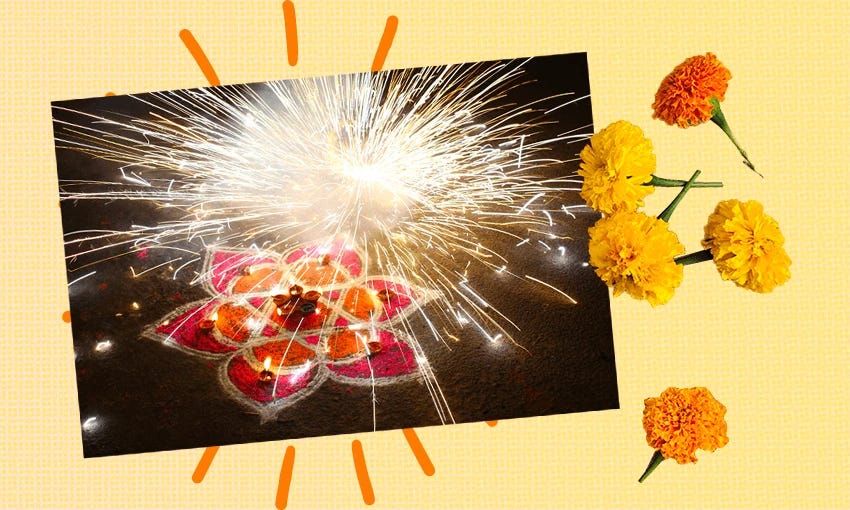
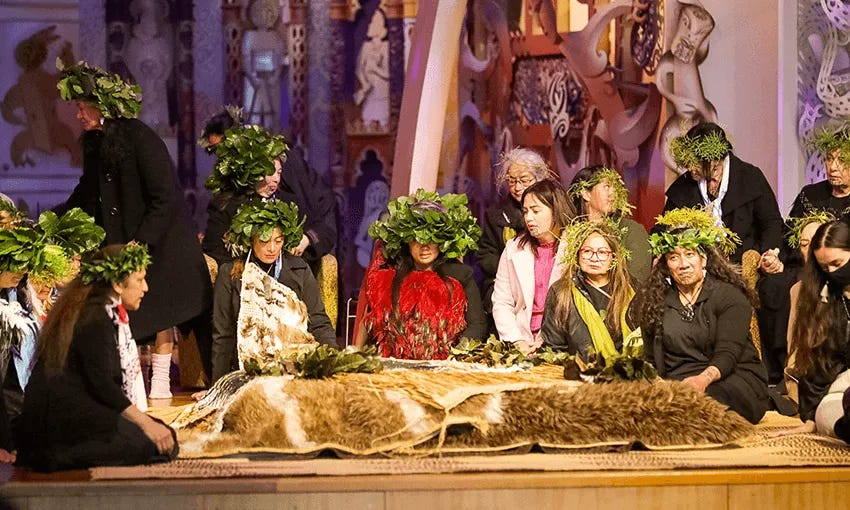
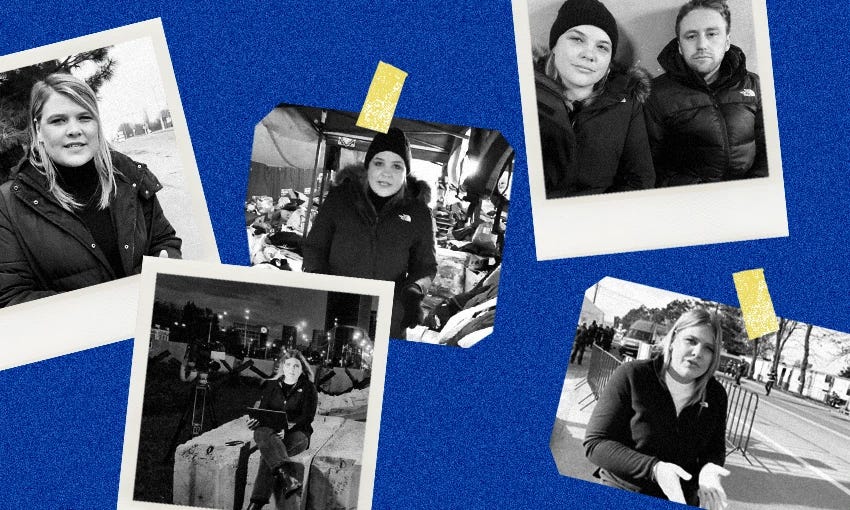

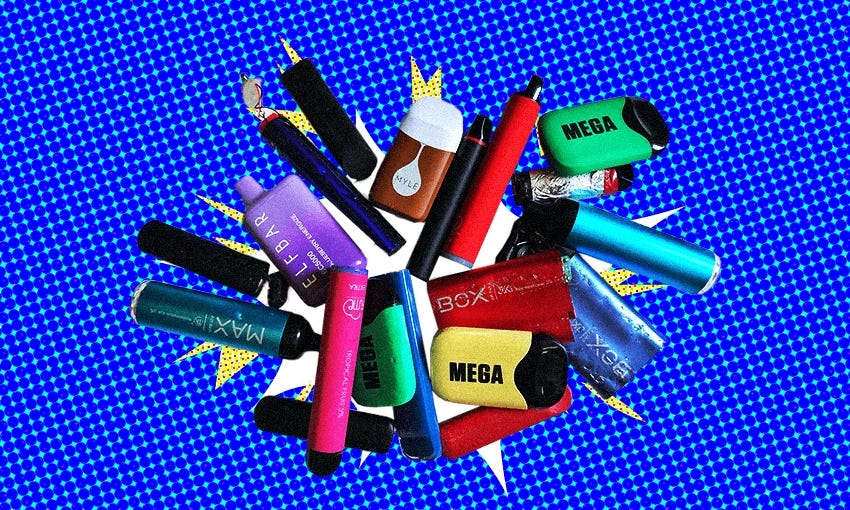
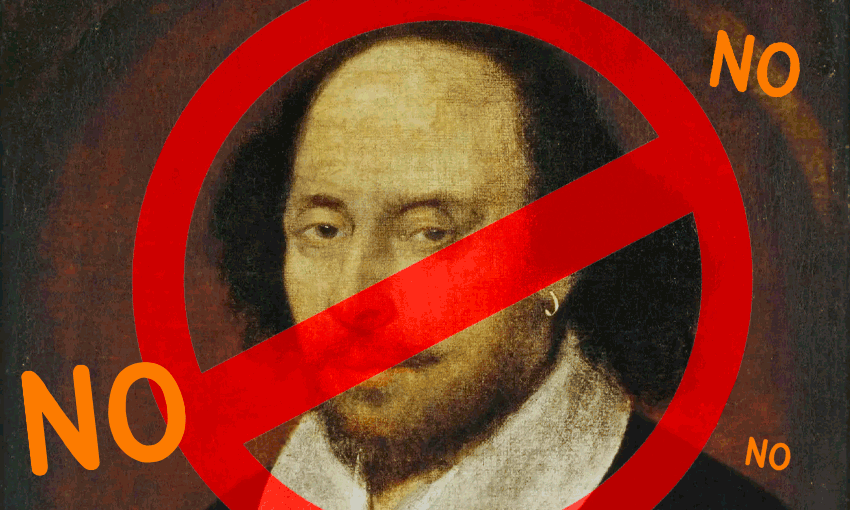

It would be nice to see you feature more of New Zealand's own outstanding photographers, along with the likely freebies articles from the Guardian about wonderful photographers like Jacques-Henri Lartigue. Contact Photoforum-nz.org for suggestions.